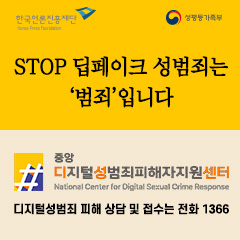
On the 24th, during the 4th Regulatory Innovation Strategy Meeting, the Ministry of Justice unveiled the "Visa Killer Regulation Reform Plan" that aims to foster economic growth by expanding the skilled foreign workforce (E-7-4), strengthening post-graduate link employment for international students, and supporting settlements for outstanding talents in advanced fields.
First and foremost, the quota for skilled foreign workers (E-7-4) transitioning has been drastically expanded from the existing 2,000 to 35,000, marking a 17.5-fold increase. The policy emphasizes the selection of exceptional candidates from the existing domestic workforce rather than introducing new individuals.
The requirements include being a registered foreigner who has resided under specific qualifications (E-9, E-10, H-2) for a total of 4 years or more within the past 10 years and currently engaged in regular employment. The individual must also enter into an E-7-4 employment contract for at least 2 years, with a current annual salary of at least 26 million won.
Furthermore, individuals should have an average income of over 25 million won in the past 2 years and possess at least beginner-level proficiency in the Korean language, scoring 200 points or more out of 300 in the points-based evaluation.
The Ministry of Justice also plans to enhance the link employment for international students after graduation. The goal is to address the shortage of skilled manpower in companies by improving regulations for international students. International students will be granted permission to work for up to 3 years after graduation. If a graduate receives specific on-site training from a shipbuilding company after graduation with the promise of hiring, they will be allowed to change their visa status to an E-7 (professional) visa.
Moreover, the Ministry aims to expand and systematize regional specialization visas for international students, currently under pilot operation. These visas allow graduates to work freely in areas with declining populations if recommended by local governments.
Additionally, support will be provided to ensure the stable settlement of outstanding talents in advanced fields. Previously, even exceptional talents faced limitations in their employment activities if they were spouses of visa holders rather than direct visa holders themselves. To secure research and development (R&D) personnel in South Korea, visas that permit employment will now be granted to family members of outstanding talents in advanced fields, including excellent international students.
(한국어 번역)
한국다문화뉴스 = 심민정 기자ㅣ법무부가 외국인 숙련기능인력 전환 쿼터를 대폭 확대하는 등의 내용을 담은 비자 규제 개혁 방안을 발표했다.
법무부는 24일 4차 규제혁신전략회의에서 외국인 숙련기능인력(E-7-4) 확대, 유학생 졸업 후 취업 연계 강화, 첨단분야 우수 인재 정주 지원 등을 골자로 한 '경제성장을 이끄는 비자 킬러규제 혁파방안'을 내놓았다.
우선 외국인 숙련기능인력(E-7-4) 전환 쿼터를 기존 2000명에서 3만5000명으로 17.5배 대폭 확대하기로 했다. 신규 도입이 아닌, 기존 국내 근로자 중 우수자를 선발한다는 방침이다.
요건은 최근 10년간 해당 자격(E-9, E-10, H-2)으로 총 4년 이상 체류하고 있는 등록외국인으로 현재 근무처에서 정상 근로 중이어야 하고, 현 근무처에서 연봉 2600만원 이상으로 향후 2년 이상 E-7-4 고용계약을 맺어야 한다.
또 최근 2년간 평균소득이 2500만원 이상이고 한국어능력 초급 이상인 사람으로 점수제 300점 만점에 200점 이상 득점 요건도 갖춰야 한다.
법무부는 또 유학생 졸업 후 취업 연계를 강화하기로 했다. 유학생에 대한 취업 규제를 개선해 기업 인력난을 해소한다는 계획이다. 유학생에게 졸업 후 취업을 3년간 전면 허용하고, 유학생이 졸업 후 조선업체에서 채용 조건으로 일정기간 현장 교육을 받은 경우 전문인력(E-7) 자격으로 변경을 허용한다고 밝혔다.
또 현재 시범운영 중인 유학생 대상 지역특화비자(유학생이 졸업 후 일정기간 인구감소지역에 거주하기로 하는 경우 지자체 추천을 거쳐 자유롭게 취업할 수 있는 비자) 등을 확대하고 지자체 지원을 체계화하기로 했다.
아울러 첨단분야 우수인재가 안정적으로 정착할 수 있도록 지원한다. 그동안 우수인재라 하더라도 배우자의 경우 취업비자가 아닌 동반비자를 부여해 취업활동에 제한이 있었는데, 한국의 연구개발(R&D) 인력 확보를 위해 우수 유학생을 포함한 첨단분야 우수인재의 동반가족에게도 취업할 수 있는 비자를 부여하기로 했다.





















